No products in the cart.
Henry Reith: Building Sustainable Business with Soul
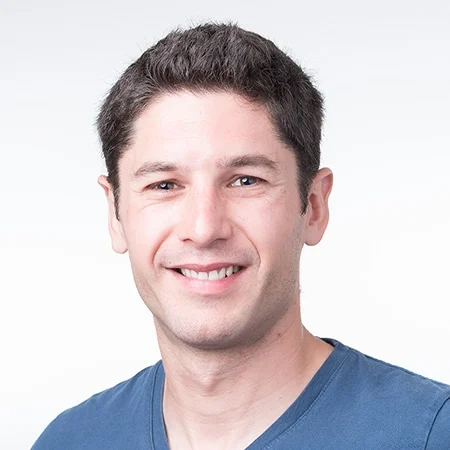
Henry Reith builds businesses with a conscience. He founded Australia’s top eco-dog care brand. First, he tackled plastic waste. Next, he launched compostable poop bags. Now, his pet sprays revolutionize care. Moreover, The Absolutely Awesome Podcast inspires changemakers. He blends NLP, breathwork, and AI for growth. Consequently, Henry Reith empowers integrity. In this feature, we highlight his path.
Henry Reith leads eco-innovation with purpose. He founded Oh Crap, saving 52 million plastic bags. Additionally, he hosts The Absolutely Awesome Podcast. His work empowers changemakers. He blends NLP and breathwork for growth. Consequently, Henry Reith drives sustainable impact. In this business leader feature, we explore his vision.
Listen To The Full Podcast Episode Here
Beverly Hills Magazine: Hey Henry! 🙂
Henry Reith: Hey, how are you going?
Beverly Hills Magazine: Going well, thanks. It’s nice to finally see you. I’m so excited to have you with us. You have an incredible story. Let’s start with, what inspired your eco-friendly business journey to begin with?
Henry Reith: It didn’t, I was inspired with knowing what I grew up in, in the country. And in the country, I grew up around green grass. I grew up around the cows, the sheep. I grew up around the wild, wildland areas. And I was very sort of cut off from the city growing up. Then I think when I first went to the city and really moved there in my early 20s, I started realising that it feels like we create a lot of waste, a lot of single-use waste. And to me, that just never quite sat right, but I didn’t really know what to do with it at the time. And then I think it’s only when I went back to the country in my late 20s that that contrast became really obvious.
And that’s a point in time that I started really being aware of that difference and appreciating that suddenly there’s so many things that just, in everyday life, whether we live in the country or the city, we’re just throwing away, throwing away. But it’s the, so often it’s the country that sees the effects. It’s the country that sees the effects of the plastic bags. In a weird way, in a city, if you see a plastic bag left on the side, it doesn’t cause you to think, ah, that shouldn’t be there. But when you’re out on a nature walk somewhere and there’s plastic and there’s bottles and there’s just, let’s call it what it is, crap everywhere, that doesn’t look right. So I think that’s what started me thinking about things that have been, yeah, it was eight years ago that I met my business partner and the world of oh crap was formed from some of those conversations and those talks.
Beverly Hills Magazine: Amazing. I happen to be quite green myself and I’m very conscious of it. Like when, even today on the freeway, I saw things on the side of the road and I’m like, why is that even there? And you know, I’m very big into recycling and I’m just conscious of these things. And I believe like here in America, we’re such a wasteful society, you know, and so we need more people like you who are being innovators in the industry and creating products and ways for us to change the pattern of wastefulness. So how did oh crap save 52 million plastic bags?
Henry Reith: Yeah, well, the exciting thing is the number even just keeps growing as well. So we just passed, I give you an update on that figure, we just passed 55 million dog poo bags saved from landfill.
Beverly Hills Magazine: Congratulations. That’s a huge achievement.
Henry Reith: Thank you. That’s a lot of crap.
Beverly Hills Magazine: It sure is.
Henry Reith: A lot of what would have been single use plastic dog poo bags aren’t anymore. So it was just over eight years ago, I met my business partner who had a dog as well. And he, it was the moment where he bent down before that and was putting his hand in a plastic bag and thought it was as simple as putting my hand in a plastic bag and I’m picking up an organic dog poo. And for some reason, it’s just clicked with me. And that doesn’t make sense. The logic in that one moment was like, okay, that’s got to change.
Beverly Hills Magazine: I think about the same thing. I’m like, okay, I’m picking this up and I’m going to go put it in the trash can. It’s going to go end up in a landfill somewhere just like a piece of plastic with, you’re right. It’s illogical. So tell us about the product you created and the journey of design and how you came up with it and just launching compostable poop bags.
Henry Reith: So the, it was pretty amazing at the time. Bruce had that moment of thing that doesn’t make sense. He actually had a friend in materials. So he texts a friend in materials and said, Hey, I’ve just done something really weird. I’ve just realized that I’ve done this weird thing of putting a organic dog poo in a plastic bag, any idea if there’s any materials out there that we could use or do stuff with. And he the friend in materials came back pretty quickly actually and said, Hey, I actually think there’s something, you know, there’s this material out there. It’s not really being used for dog poo bags, but we could give it a go.
And so that took a couple of years of some back and forth, some testing and, you know, to be a good crapologist, you got to put the time in to pick up the scoop. So there was a good couple of years of being an expert crapologist testing. And then it was back in 2017, Bruce and I met and we, we turned what was that initial sort of material and ideas into a, I guess, version one of the dog poo bag. And then over the years, we’ve just refined it and refined it and refined it. And we, we, you know, if it, if we’ve gone to the levels of how can we perfect the, the sticker that holds the role together. So, you know, it took us a year to develop the ultimate sticker.
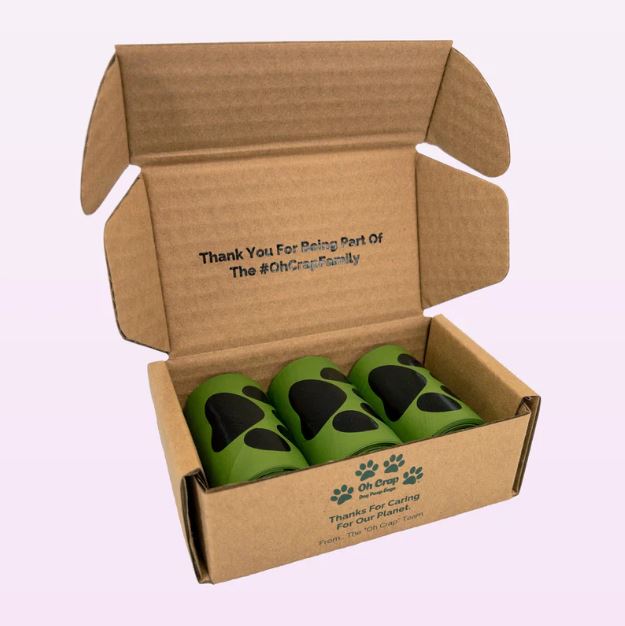
Beverly Hills Magazine: That sticker always bothers me. So I’m curious to learn what you’ve done. And are you able to share your secret of what the bags are made of?
Henry Reith: Yeah. So instead of being made from plastic, they’re made from cornstarch. So it’s a hundred percent organic material. And there’s something that lots of people get wrong when it comes to compostable things. And that’s, well, it’s biodegradable. That just means it breaks down, that’s good for the environment. Well, that’s not actually true because biodegradable just describes the way something breaks down. It doesn’t describe the material and it doesn’t say, Hey, this is going to break down over X amount of time. So it doesn’t say it’ll be gone in a couple of months time. The laptops we’re talking on today, they will probably biodegrade because of it’s the process of the molecules breaking down. So our bags are certified compostable. They’re made from cornstarch. And so with compostable, there’s actual legal tests to say, Hey, this is organic. And within 180 days, 90% of the bag must be gone. And then after six months, 100% of this material, so cornstarch in our case, must return to 100% organic matter.
Beverly Hills Magazine: Wow. So amazing.
So when you see compostable, that says it will disappear. When you see biodegradable, what that means is it will degrade using the biodegradable process. And so when you see lots of things that say, Hey, we’re biodegradable. Well, what that actually is, is people put special chemicals in. So the initial visual thing that you can see kind of breaks down quickly to lots of microplastics in general. So we’ve talked to some scientists and ironically, so the old school dirty plastic is somewhat easier at an environmental level to just go and pick up then, Hey, I’ve got this super duper biodegradable bag of some sort that is actually after a couple of years, just millions of pieces. So really what you want to look for is the fact that things are compostable. And Hey, that means there’s a legal government test to say it will be 100% gone at an organic level.
Beverly Hills Magazine: That’s an incredible achievement to have created a product that does that. And it’s so needed. So I’m a Christian and God in the Bible was like, I give you the earth to have dominion over it. And I just feel like we’ve so not honored that responsibility to take care of the earth. And I love how you’re just using the substances of the earth, natural earth, to be able to create the products that we need in our lives. And I think we need to get back to that. I’m of the mind, like, let’s go back to garden of Eden thinking, you know, like eating healthy, using the natural products on our skin, on our body, and even for this purpose. So it’s incredible what you’re doing. And you’re also doing pet sprays, right?
Henry Reith: Yeah, we’re doing pet sprays and we’re actually taking sort of a bigger, we’ve, we’ve been doing dog food bag, dog food bags for eight years. So we kind of know now lots of the questions to ask, where to look, what is like, I now see eco-friendly slash, you know, is it, is it friendly on the environment? I’m sort of that robot looking around going, Oh, I can see that. I can see that. I think one of our biggest questions was that we really realized is if we identify and use the question, where’s our, where’s the plastic in our life? Suddenly I see it everywhere. And so we kind of looked around pet ownership more. And I’ve always had dogs. I’ve had dogs for years.
Beverly Hills Magazine: Me too. I love my furry friends. I mean, they’re my babies. I say a life without pets or dogs is a life without love. I mean, you gotta have them.
Henry Reith: Aaah yes, that’s so good. You hit heart strings with that one!
Beverly Hills Magazine: Isn’t it true?
Henry Reith: Yes! So when we started asking those questions, it’s suddenly like, hang on so much of the stuff we’re doing with dogs has the single use plastic in. And one of them is all of the sprays that get used, you know, the urinary stain remover. Don’t chew this. Don’t be here. They all come in single or they all come number one, they come filled up with water. So you’re shipping water around the world. Number one. And then there’s all the knock on effects of shipping just water that we already have at home. And number two, lots of those bottles are single use or they have a cap that single use there’s, some of it’s recyclable or bits of it. It’s none of the sort of the general sprays you get that perfect, or they’ve got a label on the front that then can’t be recycled. So what we did was we took say urinary stain remover, and we turned it into a very simple tablet.
And what you do, you go and get your forever bottle, drop it in your bottle, go and fill up your water at home. And then you’ve got your urinary stain remover. So in your puppy stage, maybe later life, maybe there’s, we know there’s some dogs that through their life have a few accidents. You have your forever, forever bottle, you’re not throwing it out. And we’ve designed ours that if it does break, for some reason, it falls off the side or whatever, it’s 100% recyclable. But yeah, we suddenly realized that why do we ship water all over the world when we have it at home?
Beverly Hills Magazine: That’s so brilliant. You’re so smart. I love it. And it makes perfect sense. And it’s like, once you wake up to this, and I think, being in consumer products is there’s a part of a kind of re-educating the consumers, you know, so they understand why this product exists. And then once they realize the difference, then it’s hard to not, it’s hard to close your eyes again. You know, it’s like, absolutely, this makes perfect sense. And that’s, that’s what’s so fascinating is now, I think now I can see it. I can’t unsee it.
Henry Reith: We’ve applied the same thing to dog toys as well.
Beverly Hills Magazine: That’s awesome. Because I have, actually, I was just looking at my, I have two little chihuahuas. One’s a four pound and the other is a 10 pound. But I was looking at my pile of toys, and I just keep accumulating more and more toys. So I’m so glad you’re doing this in the toy market too.
Henry Reith: And they’ve all got plastic, so many of them, they’ve got plastic at the top, or they’re this plastic thing. Or the, you know, from the eco-friendly point of view, the number of conversations that I have with dog owners and myself over the years, like I’ve been part of this, I’ve been through this journey, is, oh, I’m going to buy my dog a toy. Oh, don’t worry, they’re going to destroy it in 15 minutes, then it’s gone. Hang on. And then I’m going to throw my toy in the bin and the dog’s never going to have it again. So we went and found that we could make dog toys out of coconut fibers. So what would have gone to waste, just literally coconuts being thrown out, turn that into coconut fibers. And you got the ropes, you got the balls, you got everything. And because they’re coconut fibers, they’re quite hard wearing.
Plus they’re from a eco-friendly material. If it does, you know, eventually your dog does the really good stuff and really chews through it eventually that we, you know, testing, we’ve had them for a bit now. We haven’t had any dogs in at least a few months we’ve been testing them. Chew through them. So, but when they do, they’re made out of coconut, it will actually… Eventually when they do. So they’re longer lasting being made of coconut.
Beverly Hills Magazine: Yeah. I imagine they’re a lot harder, or tougher.
Henry Reith: So we certainly say for some dog owners, they might want to get it, put it in some water for 15 minutes when they get it, just to soften it a tiny bit. But, you know, most dog toys are, they’ve got plastics hidden somewhere. I could go on about the dog toy market forever. The fact that us as dog owners, I just get it. They’ll be destroyed very quickly and it gets destroyed. And there’s those micro bits of plastic everywhere and no fun. So we’re really asking ourselves the bigger questions now of, okay, where’s all of the single use plastic in dog ownership?
Beverly Hills Magazine: Well, I think it’s brilliant because we, as consumers, we forget that what we’re using is going to become a pile of trash somewhere. And that’s just that big pile of trash is just going to get bigger and bigger and bigger. And so this is the solution to that, to avoid that trash pile up, you know, that’s ending up in our ocean. So it’s like this collective process that’s hurting the earth that we’re supposed to have dominion over and be caring about.
So what you’re doing is creating a solution that’s literally changing the world for the better. And a lot more people are becoming eco-friendly and understanding that these are measures we have to take, you know, to preserve our world and take good care of it.
Henry Reith: And I think what’s been really cool in the development of the dog toys and the sprays actually is dog poo bags. We can’t make it the same price as plastic. The economies of scale, even, you know, let’s talk real business here. Economies of scale wouldn’t get us to plastic levels. But the sprays, that’s the same price as any other spray. So why wouldn’t you just choose eco-friendly? It’s not a, you know, we’re not charging more because it’s eco-friendly. It’s the same price. You know, our thing is how can we make the best product in the world? Oh, and it’s just eco-friendly as one of the things it does. And the dog toys, same thing.
When I go to my local pet store, all of our dog toys are the same price. So you know, why wouldn’t we choose eco-friendly over not? And I think that’s where I’m hoping lots of the world goes is it’s not, it’s not going to be a choice. It’s not going to be a monetary choice to be eco-friendly. It’s just, well, it’s the same product, but one is eco-friendly and one isn’t. So why didn’t I obviously pick the one that is eco-friendly?
Beverly Hills Magazine: I love that. So now how can businesses balance profit with planetary care like you’re doing? You know, how did you, I mean, obviously you told your story, but how can other businesses that maybe aren’t being eco-friendly now start moving and shifting in that direction in terms of products they’re creating and, and how they function as a business?
Henry Reith: Yeah, a fascinating question, because I think it really starts with the question itself is where’s the, where’s the hidden plastic? So the question is, where’s the hidden plastic in what we do every day or where’s the hidden plastic in the office or where’s the hidden plastic? Call the things that we want to change the hidden thing, and then we see it everywhere. I think that’s the first step. So the question is the first step. And then after then, over eight years, I’ve seen a lot more availability of eco-style products. So it could start, you know, TV, I’ll pick TV remotes as just a really random example. Uh, who knows exactly how they’re produced at the moment, but a lot of that material could be at least, uh, recyclable, or it could be, you know, there’s so many effort. Ironically, there’s all these clothes out there that are made for from plastics that would have gone to the sea. Now I could talk about that all day, but if you’re going to use plastic, go and find that stuff.
Beverly Hills Magazine: Well, I’m thinking about like shampoo bottles or beauty because obviously I’m a woman, right? And so that industry is so massive in terms of product distribution. And, I mean, that would be incredible. It’s so much waste. They’re all single use. I can’t even imagine where they are right now. They’re probably floating in an ocean somewhere. But, well, and it’s all the ones that we can’t see as well. Yeah, because it’s, I mean, we’re seeing a shift towards changing what’s in the products and going more natural and that’s wonderful. But now we need to go a step further and what the product is in and start changing that to not be single use and start using more natural products, compostable.
Henry Reith: So I think there’s a two sided thing. There is both having some kind of reusable bottles. So for me personally, I’ve not used the same bottle for a couple of years now, but what I would at least do is I’ll, if I’m going to get the refills, I’ll get the massive refills. So the, I mean, I think of things now from the logistics all the way back to the production and the logistics all the way through. So at least by getting a big bottle, I’ve reduced down on the logistics, but there are also, I now, I know this, there are compostable soft packaging solutions. So you can go and create a compostable, let’s say refill pack for your bottle that you’ve decided to keep forever. And that is possible. That is a hundred percent possible. And then in the, I know also in the shampoo world, there is some of the equivalents of our tablets for our urinal stain remover.
There’s those same concepts where it’s a, at the end of the day, the bit you want is all the chemicals and all the things that do the hair bit. Well, generally that’s just a tiny bit of the whole, the whole liquid. The rest of it is just sort of filler. It’s just carrier. So yeah, there are certainly it, from my knowledge, there are the sort of tablet or very, very small impact sort of shampoos and conditioners as well out there. So even now that I think that they’re available and, you know, it makes sense for shops as well. They don’t want to have shelves that are endlessly stacked end to end with bottles. They could half their shelf space and sell an awful lot more variety of things too.
Beverly Hills Magazine: Yeah, it’s, it would impact industries across the board. So now you, how do you integrate spirituality into your sustainable entrepreneurship and business leadership philosophies?
Henry Reith: Yeah, I think that’s really important to not just, just, it’s just about money. It’s just about profit. It’s just about squeezing, you know, everything out of things just to earn money, just to sell products. We actually try not to sell products in some cases because we don’t think it’s ethical to don’t go and do Black Friday sales. We don’t think it’s ethical to go and do Boxing Day sales, Prime Day. We don’t think it’s ethical to keep trying to push people to buy more. But when people do require to buy things, we want to be the, you know, the people that they come to. So I think that’s one side of things. But for me personally, I’ve really been on a journey of, in my early 20s, my whole body was tight, strong and like, just really closed up because I was so desperate to get somewhere.
And I think it was my late, in my late 20s, I started realizing that there’s these things called meditation, there’s this stuff called meditation. And there’s a bit of yoga. And eventually I did yoga for a bit, then the meditation came around. And I started realizing that, you know, I’ll say I, I’m pretty fit and strong. And the thing that really got me is when I started meditating, always been pretty proud of my six pack, like, hey, it looks good. You know, I live on the Sunshine Coast in Australia, like, let’s bring on the six pack. It’s all good. But I started meditating, and it all disappeared.
Beverly Hills Magazine: Like the ego, right? The ego death, sort of the physical is an illusion. And it’s more our spiritual selves, that is the true importance. For me, as a Christian, the Lord always says, don’t judge a book by its cover. And He’s always helping me to remember that we’re spiritual, and we have such depth to our beings. And we have to honor that in one another, you know.
Henry Reith: And so what I realized is, yeah, my whole body was so tense, and so sort of fighting itself. So I actually had to actually properly go to the gym and actually earn my own six pack back after that. After my body had relaxed and become grounded, I had to go and earn the true strength sort of back. And I think that really opened my mind to hang on. The way I was taught to live as a kid, the way the world sort of pushes you to live is very… I feel like it’s very disconnected from actually being human and being my true self. So what that ended up being is I started working like, okay, how do we change the whole of business to be better? So yeah, now the whole… I’ve started doing gratitude practices. So I’ve now got the whole team doing gratitude practices. And, you know, I think God very much says, be grateful for things, and the world sort of changes around you. There’s a lot of science to back that up. So we do gratitude practices, everyone. I also think it’s very important in meetings and when we start things is to come into our bodies and actually be present. So I think in a business meeting, or any kind of meeting, I do this in lots of situations now. Let’s bring ourselves to the center.
Beverly Hills Magazine: Henry Reith, your eco-innovations and spiritual approach inspire us. Thank you for sharing how to lead with purpose.
Henry Reith: Thank you. I’m grateful to spread sustainable, heart-centered business ideas.




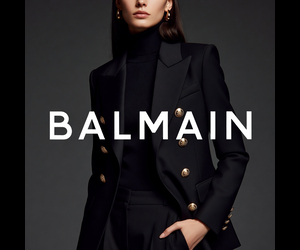
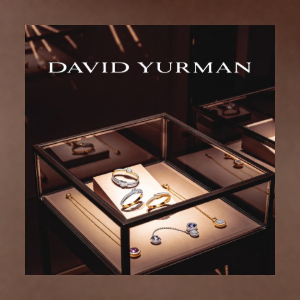
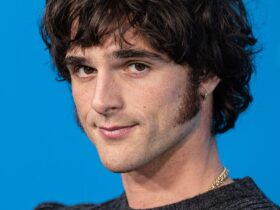

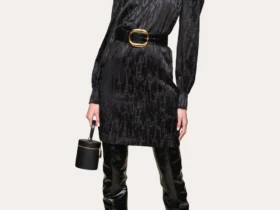

Leave a Reply